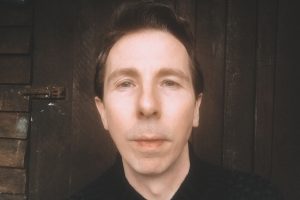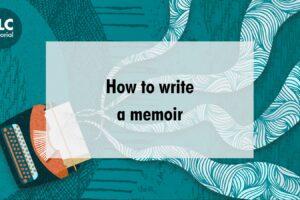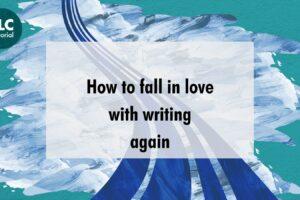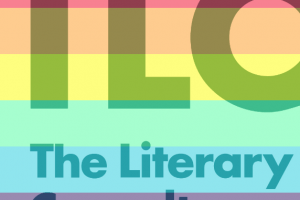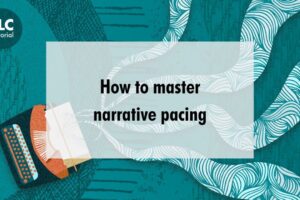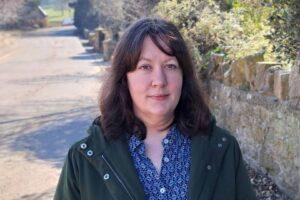This month’s TLC Blog is from writer, Free Read receipient, and soon-to-be published author Jon Ransom. An early draft of his forthcoming novel ‘The Whale Tattoo’ (Muswell Press, Spring 2022) first appeared in the TLC/AM Heath Free Reads Anthology in 2019. This is his first piece of non-fiction, and we’re delighted to feature it here.
*Content warning: death, illness, grief*
My mum was a diver.
Whenever I was restless, she would tell me how falling felt. The air rushing by like nothing’s really there. Until it was, busting through the wet beneath. Mum reckoned falling was freedom. The faster you fell, the freer you were. Falling is clever like that. Then mum would light another John Player Special. Smoke metallic and blue blown about us. Tell me she was not much older when some lad pushed her off the high board. She never dived again.
A lifetime later in hospital, while we waited for mum to die, I’d wondered what his name was. Or if she’d even told me? Because this lad had stolen something from her, and it would be better to know. But hard as I tried, I couldn’t remember. My world was up-side-down. Sat beside mum, her eyes closed, falling through whatever is in-between here and there.
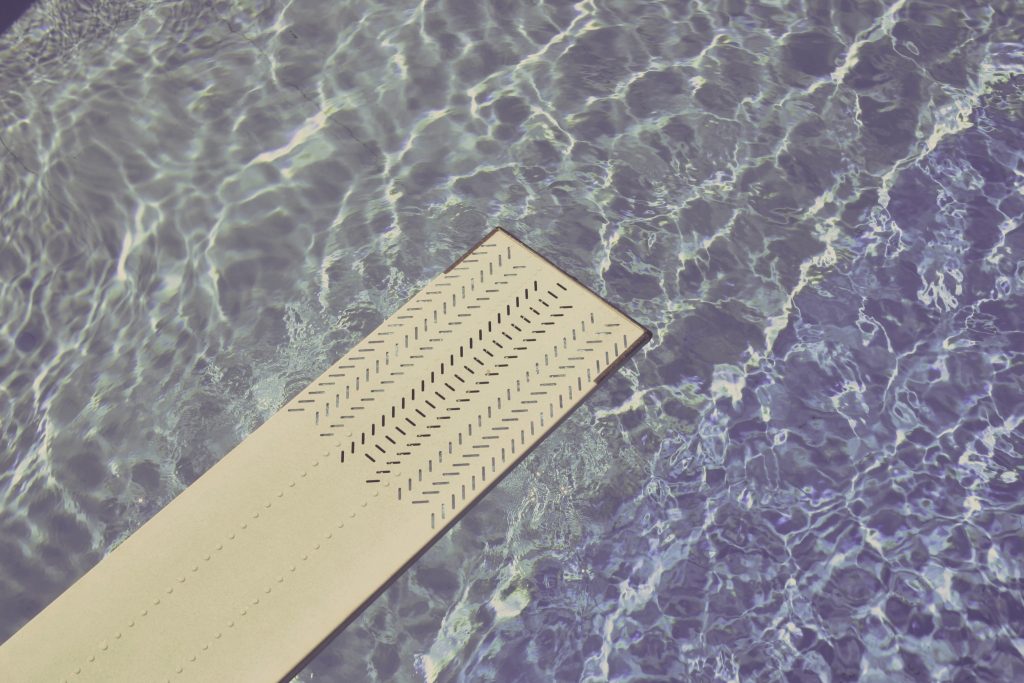
Past all the other bays on Denver ward is where they put mum. It’s different because it didn’t have a station. No nurse watching all the while. Instead, this bay is where women wait to die. I didn’t know about a hospice. What to fight for. Or let slide, like the shiny floor beneath my trainers. That would come later.
While K told mum big things with small words, I’d written down the passing nurse’s name on my mobile phone, Chris. Because I’d wanted to take a picture to remember, but with words instead. How he’d looked. Hair black as tar and somehow blue. His hands big as a shovel, like a gravedigger. This nurse was nobody to me. Yet in my head I turned him into the lad who ruined my mum. Her story needed his name to finish it. In the same way dogshit is nothing much without the stink. Right then, I decided to write down the stories I’d kept out of sight inside my head. They’d wrapped around one another and wouldn’t be easy to untangle. But I knew it mattered and more, like where words come from.
Mum was filled-up with stories. I reckon poor people often are. The trick of turning nothing into something. Could be I inherited her gift in the same way K has her hands. I’d like to believe so. On a hot day beside the river all kinds of words would fall out of her. She’d sweat a tale as wild as the bank. Conjuring waltzing weeds and brambles that were really the tangled beards of giants who slept beneath the dirt in daylight. Riverbanks are mysterious like that.
K wanted to know what I was writing. I passed her my mobile phone. She read all the words that had come out of my head. I hadn’t known what a first reader was. Or that I’d found one in my sister that day on Denver ward. Her eyes were full with what was happening. ‘You’re wrong,’ she’d said. ‘Two boys pushed her.’ And in that moment K became my memory, too.
Whenever mum woke up, she was troubled. Wanted to know how long me and K had been there. Because of the drugs racing through her she wasn’t herself. Instead, a stranger we never knew. Cancer is cruel like that. Until it isn’t. And mum was back again, needing me to clean her nails because she’d ripped the canula out in the night. They were messed-up with old blood. Dying people ask for surprising things.
While I scraped and filed, I had one eye on the canula. Reminded me of the bleached reeds bending to the marsh. Made a note in my head to write it down afterwards, when mum’s nails were bright and shaped like almonds. Next day mum wasn’t on the ward. Or anywhere. She died in the night holding a stranger’s hand. How somebody can completely disappear like a thunderclap is bewildering.
Later, we sat side by side in the mortuary waiting room. The chairs here were worn and grey, heavy with too much grief. K didn’t want to see mum after all. Believed no good could come from talking to the dead. We left without saying goodbye. On the way home I wondered if we’d done the right thing. But there was no way to know. What’s right or wrong. How much distance runs between the two? This not knowing is an endless ache. But the hurt, familiar as my palms, became malleable. Turned into words, and chunks of story that gave me relief. Though when I grew restless and wanted to run for cover, I’d go outside. Imagine mum someplace else. In sky bruised purple. This colour I couldn’t escape, because it was her colour.
I reckon K and me were still beating back grief when death came around again. This unutterable word that gets everywhere eventually. By then my mobile phone was heavy with stories about rivers, and fishermen, and boys I’ve loved, when dad got cancer everywhere at once.
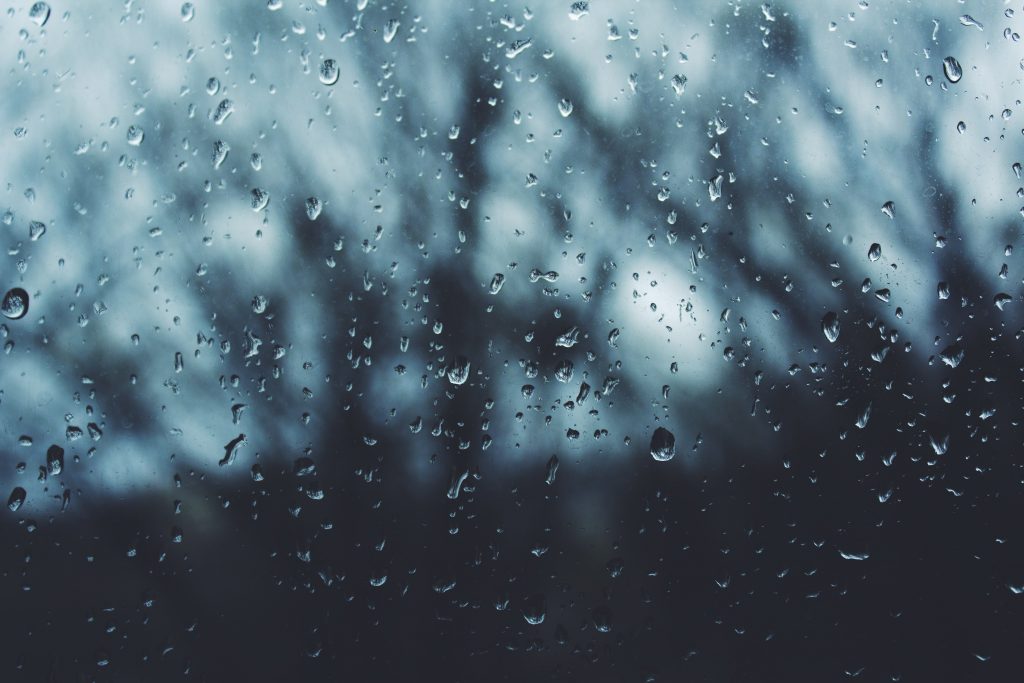
K called to tell me dad was dying. The doctor gave him the diagnosis as if he were announcing the weather, Rain tomorrow, could be cold. Forecast, three months left to live. This doctor’s tongue might have been familiar with death, but dad’s ears were new to the idea. I told K we needed to do something about it. We found dad a different doctor. She helped him to breathe. To see that everything was alright. Until it wasn’t. Because dad didn’t feel sick. Death is cunning like that.
Right away, I wrote about it. My dad was an engineer. He started out making gallopers go up and down. Could move metal in ways it wasn’t meant to. I’d ask him about those wooden horses, running nowhere. Around and around. The pleasing colour’s he told me were once painted by Italian artists, Who knew things nobody else did. Layers of paint laid down in such a way that the horses themselves appeared to snort and kick and gallop. He’d go on about pistons in the same way mum remembered diving. Though dad fell in circles.
And this became our routine. For one year. Hours in hospital waiting around. Writing in the gaps. These spaces were sometimes filled with just one sentence, Blue curtains with sharp folds don’t hide what’s happening behind. Interrupted by his hacking. Or helping him piss because the bay was still, past all the others, where men are left to die. Though there were longer stretches with aching thumbs. Like during a blood transfusion when I had wondered how much of himself was leftover inside. What belonged to somebody else?
Dad took his time dying, so me and K wouldn’t miss a thing. And during those hours, I hadn’t known what I was writing would become part of The Whale Tattoo* three years later. Or that these same words, untangled from my head, could carry me as far. One afternoon dad took me aside. Told me he wasn’t worried about how I’d be. That he knew I’d look out for K. Wanted to know if I reckoned there was anything afterwards? Dying people ask for unknowable things.
Then on a Sunday morning he died. Two days before we’d thought long and hard about how to make a tall man fit into a short bed. But it didn’t matter. The hospice was better than the hospital ward. Worth fighting for.
K wasn’t with us for the big ride. Just me and dad. He’d slept for two days solid. Talking to ghosts. Before he opened-up his eyes. The colour blue had flown away. And I knew it was happening right then. A gladness bust about me. That it would be over. I was with him. He’d finally stop falling. But it wasn’t like television. Instead, brutal and beautiful, stirred so impossibly together they became inseparable. In the silence I said to him, ‘You’re dead, dad.’
On the walk home I had mum in my head. Thinking about the lines she made behind the kitchen door, marking our height. The lead silvered, like dad’s dead eyes. Suddenly I realised I would never see her again. Have no new stories to soothe my ears. I stopped still on the pavement. Tarmac bright in the sweltering. Stood there with this terrible truth, until I remembered how to breathe. Grief is baffling like that.
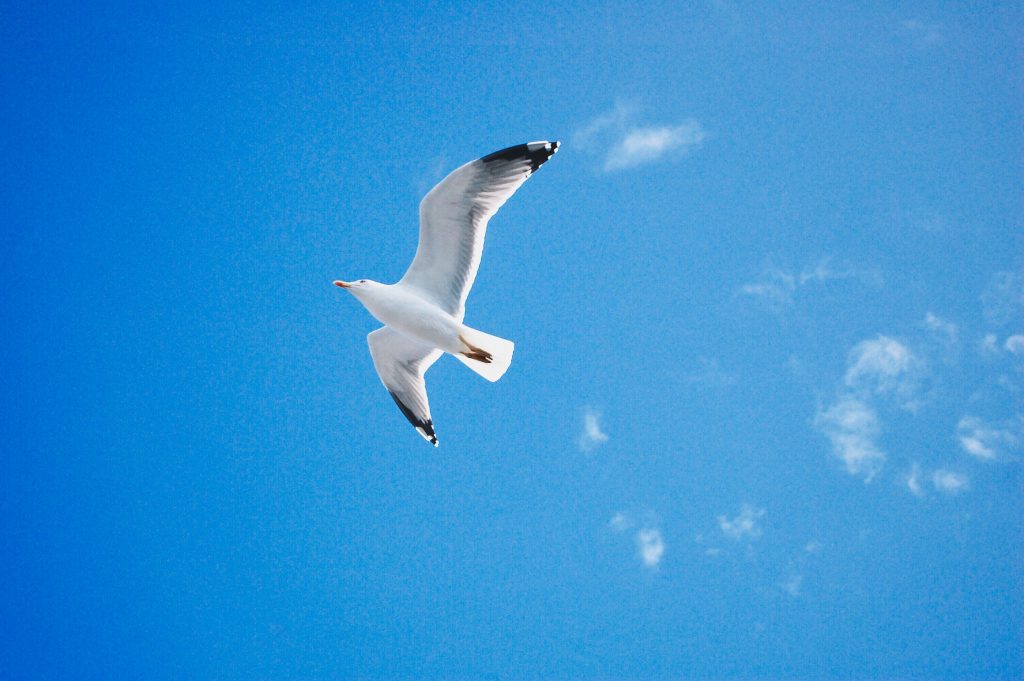
Morning after dad died, K and me got on the coast hopper. K watched green go galloping by outside the window. While I wrote down small words sparked by big things on my mobile phone. We ached for brand new sand washed clean by the tide. Gulls gliding like paper airplanes, and ice cream. The noise of it all. Life doing what it does best, soaking us. With my back against the hard sea wall, K barefoot off hunting for holey stones, I thought about the time a giant sperm whale had washed-up on the shore. Huge as anything. The smell mean like a gut punch. Our hearts hammering. Stood there with the impossibility of seeing such a sight.
And I took hold of the edge of this memory, tugged a little bit harder. Until it loosened and became mine to do what I wanted with. Because that’s how I write while I’m falling: Death has followed me here and I can prove it, because whenever something really fucked-up is about to happen, my balls ache. Proof is funny like that…
*An early draft of The Whale Tattoo was featured in the TLC/AM Heath Free Reads Anthology.


